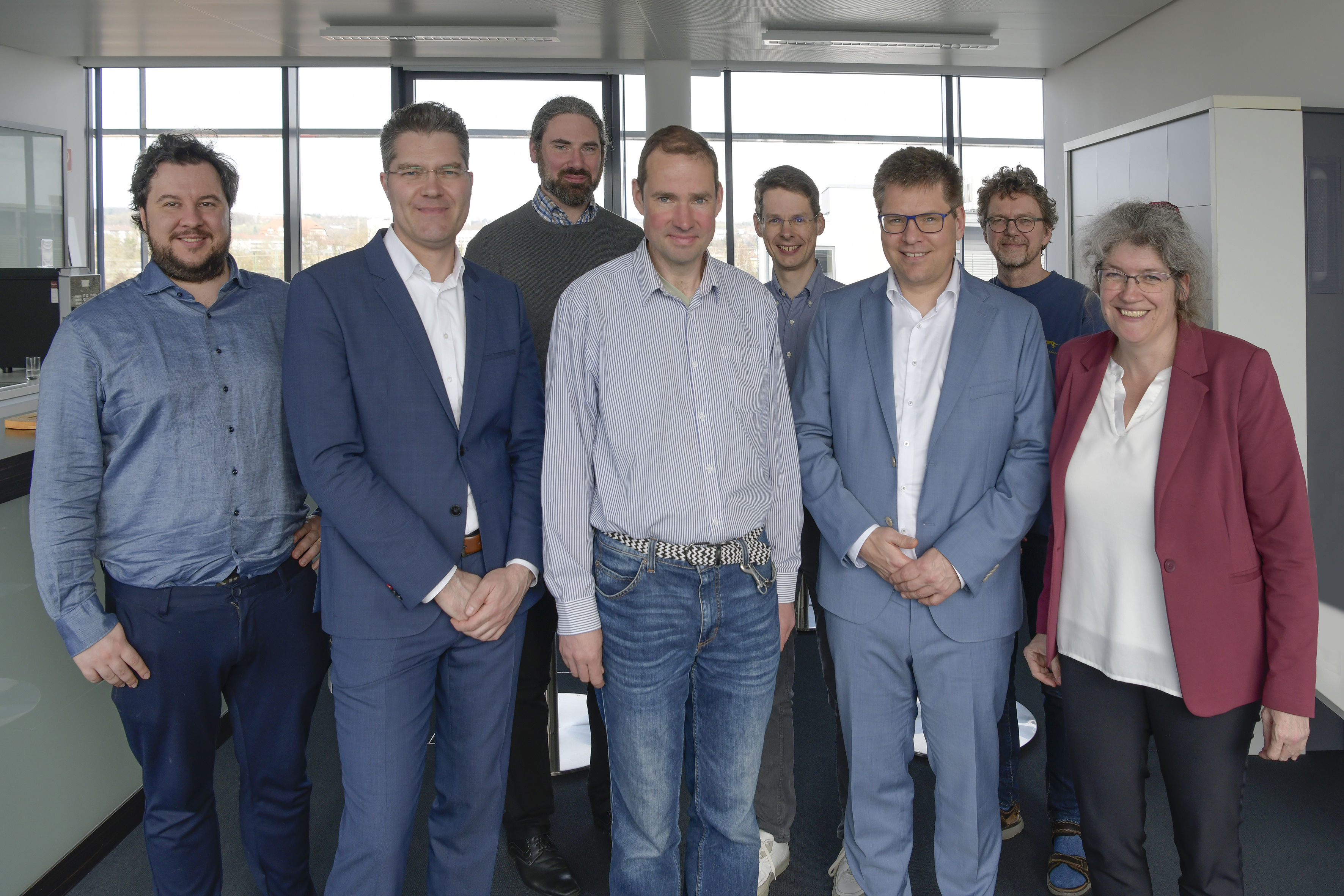All participants agreed that groundbreaking algorithms and methods for a wide range of applications in chemistry, financial mathematics, image processing and flow and material simulation were developed during the project. In addition to new algorithms in the field of quantum machine learning, coding and decoding techniques were improved and thorough benchmarks of quantum hardware and algorithms were established. The meeting focused primarily on recent advances, such as the novel models for coding image data, which have significantly reduced the number of qubits needed and made circuits less sensitive to noise.
Next Generation Already Doing Research
The research work of doctoral students Thomas Cheng, Tom Ewen, and Alexander Geng was also in the spotlight: from quantum transfer learning and the search for quantum architectures to innovative encryption and compression techniques, they are exploring the limits of quantum computing in their dissertations.
In order to stabilize this research, the state launched the »Quantum Initiative Rhineland-Palatinate« (QUIP) in 2023. With great success: 35 doctoral students and postdocs are already researching quantum topics, and the internships have all been filled.
